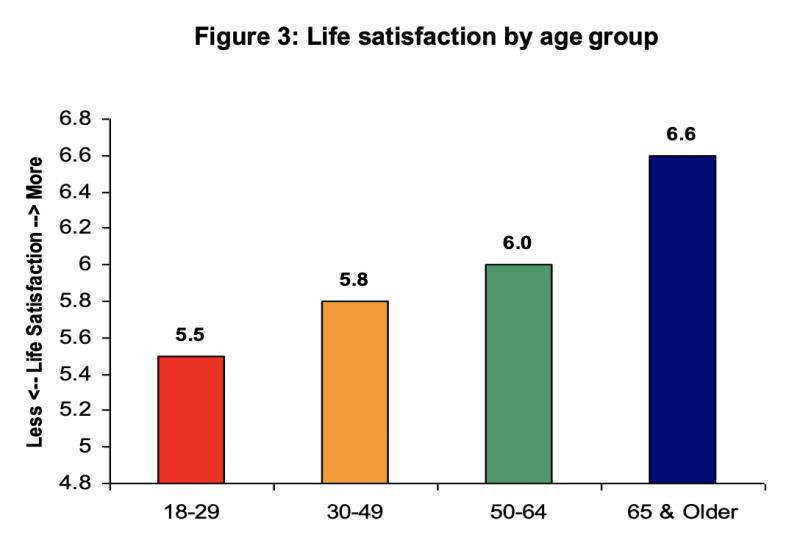 The recent controversy around the book The Welfare Trait is part of a long-standing debate on whether poverty is caused by structure or behaviour, writes Mireia Borrell-Porta. Here, she offers her own reading of the book and explains why claiming benefits is not simply a question of personality; instead, a number of other factors – including structural economic and environmental – need to be taken into account.
The recent controversy around the book The Welfare Trait is part of a long-standing debate on whether poverty is caused by structure or behaviour, writes Mireia Borrell-Porta. Here, she offers her own reading of the book and explains why claiming benefits is not simply a question of personality; instead, a number of other factors – including structural economic and environmental – need to be taken into account.
‘The Welfare Trait’ by Adam Perkins is currently the subject of controversial debate on mainstream and social media. Having been praised (albeit with some nuances) by the Adam Smith Institute and the Spectator, it has been criticised by The Equality Trust and the Guardian among others. The book’s main argument is that welfare benefits are a ‘production line of unfit children’, and that the welfare state is gradually making new generations ‘resistant to employment‘. This is the result of two phenomena, according to Perkins. First, benefits have the effect of increasing childbirth in workless households more than in working ones. Second, individuals with ‘employment-resistant’ personalities are over-represented among welfare claimants, who then pass these ‘inconvenient traits’ on to their children, making them also less likely to work.
The book has been criticised for using misleading numbers, and for outright invention of terms such as ‘employment-resistant’, which is apparently not featured in clinical classifications. Beyond these data concerns the interpretation of his findings also merits analysis. The argument that worklessness is caused by behaviour is part of a broader political trend which claims that the root cause of poverty and worklessness is the reckless or ‘negative’ human behaviour; such narratives often overlook, and sometimes even ignore, structural causes. Yet those structural causes do exist, and no constructive debate on poverty can be had while we ignore them.
A case of framing?
This trend of focusing on behaviour is, in a sense, framing. Which leads to another book: ‘Don’t think of an elephant’. Framing, this book argues, happens unconsciously in our brains and shapes the way we reason and what is understood as common sense. So to think differently, we need to speak differently. The importance of language is something that politicians and media outlets have perfectly understood. The ‘culture of dependency’ of ‘scroungers’, ‘skivers’ and the ‘workshy’, the deserving and non-deserving poor – and now perhaps the ‘employment-resistant’ – are all concepts with which we are regularly bombarded.
This is the language used to describe the behaviour of individuals and families in poverty, and its use has been coupled with an increase in the belief that benefits are fraudulently claimed. According to an Ipsos Mori publication from 2013, the UK public believed that 24 per cent of benefits were fraudulently claimed, while official statistics estimate that 0.7 per cent of benefits is paid due to fraud. No wonder then that more policies have been put in place to prevent this apparent rise in benefit fraud. It is in this context that ‘The Welfare Trait’ has been published.
Perkins’ argument is also reminiscent of American conservativism from the mid-1970s. A prominent voice at the time was that of political scientist Charles Murray who, concerned with the fact that poverty in the 1970s did not decline and even rose slightly, grew convinced that the culprits were the decline of the husband-wife family and the drop in work levels among the poor. These trends, he argued, were to be traced to a shift in behaviour on the part of individuals who suffered from poverty. He suggested that individuals are generally rational and make their decisions on work and having children depending on the economic incentives of the time. By increasing or decreasing benefits, the welfare state affects such incentives.
In his later writings, personal character was added to these explanations, leading to his claims that the welfare state not only generated perverse incentives, but also enabled certain people to behave as they ‘naturally’ wanted to behave (i.e. allowing them not to work if they did not want to). Personal character was therefore relevant, and at the same time welfare incentives could have a long-term (detrimental) effect on them. His solution was radical: abolish poverty programmes.
Perkins’ argument and solutions are remarkably similar to those of Murray. His thesis revolves around the issue of welfare claimants being ‘employment-resistant’ or ‘work-shy’, and he refers to the perverse incentives generated by the welfare state by arguing that ‘if you have welfare policies that set up perverse incentives for children to be born into disadvantaged households, you’re causing children to be born into unfortunate circumstances’. At the same time, he suggests that by providing an income and not requiring work in return, the welfare state gives individuals the options of staying up late at night and sleeping during the day which, but for individuals with anti-social behaviour tendencies, allows them to ‘have plenty of energy to hunt for victims under the protection of darkness’. One of his solutions – and one of the most controversial – is that welfare generosity should be limited and reduced until workless households have, on average, the same number of children as working households (while also suggesting an increase in early childhood education).
Behavioural or structural causes?
To explain this silence on structural causes, he wrote on Twitter: ‘I am a personality researcher, so I focus on personality. Someone else can do the rest’. The problem with this argument is that, as should be obvious, regardless of the focus of one’s research there is a need to control for potential confounding factors.
The disregard of structural economic and environmental factors would have likely appalled the likes of Richard Titmuss and those who thought that worklessness and poverty have their roots on such causes. Titmuss – quoting Richard Tawney – claimed that ‘the problem of poverty is not a problem of individual character and its waywardness, but a problem of economic and industrial organisation. In a similar vein, Michael Harrington states in The Other America that ‘the real explanation of why the poor are where they are is that they made the mistake of being born to the wrong parents, in the wrong section of the country, in the wrong industry, or in the wrong racial or ethnic group’, and that once these mistakes have been made, ‘they could have been paragons of will and morality, but most of them would never even have had a chance to get out of the other America’.
A more nuanced view is that provided by William Julius Wilson. This American sociologist defended in his 1987 book ‘The Truly Disadvantaged’ the inclusion of behaviour and character when providing an account of poverty and unemployment of urban blacks in 1970s America. However, he stressed that such behavioural patterns and character are themselves ‘responses to social structural constraints and opportunities’, such as the collapse of manufacturing industry, increasing polarisation of the labour market into low-wage and high-wage sectors, innovations in technology and so forth.
Empirical research has consistently shown that poverty affects people’s mental and physical health and their education opportunities, which all have a strong effect on the likelihood of being employed. A recent review of the literature on the causal link between financial resources and child outcomes by Kerris Cooper and Kitty Stewart from the LSE, find that household financial resources have a significant independent impact on cognitive and behavioural child outcomes. They also find that income indirectly affects these outcomes by affecting maternal mental health, parenting and home behaviour. So behaviour may well affect the likelihood of employment, but this is, in turn, very much affected by the lack of financial resources.
Anyone studying the relationship between behaviour, character or personality and employment should take these variables into account before claiming that ‘the welfare state becomes a production line for damaged kids’. Because, with parental and children behaviour being influenced by the amount of financial resources in a household, the reasonable approach is not to decrease the level of benefits, as Perkins suggests; this is a case for increasing them.
 Mireia Borrell-Porta is a Postdoctoral Researcher at the Department of Social Policy and Intervention at the University of Oxford. She completed her PhD at the European Institute at the LSE and holds an MSc in European Political Economy from LSE and a BSc in Economics from Universitat Pompeu Fabra. Mireia’s main research interests focus on the interplay between social norms and economic incentives and their joint impact on individual behaviour. Her areas of interest are social policy, and family policy in particular, and political economy. Mireia contributes periodically to a blog on economics and politics, written in Catalan.
Mireia Borrell-Porta is a Postdoctoral Researcher at the Department of Social Policy and Intervention at the University of Oxford. She completed her PhD at the European Institute at the LSE and holds an MSc in European Political Economy from LSE and a BSc in Economics from Universitat Pompeu Fabra. Mireia’s main research interests focus on the interplay between social norms and economic incentives and their joint impact on individual behaviour. Her areas of interest are social policy, and family policy in particular, and political economy. Mireia contributes periodically to a blog on economics and politics, written in Catalan.








No mention of what caused so many workless families.
I was born into a working class family [1958] and when I was a child I didn’t know of one family that wasn’t working, everyone had a job….until Margaret Thatcher got rid of/attacked the coal, car, steel, motorbike industries.
I noticed a BIG difference from full employment in the 1960-70s to the 1980s when the Tories attacked the unions/industries.
Another thing I’d like to address: I was unable to go to college & university because my parents couldn’t afford it on one wage and a mortgage, so how could I better myself?
Jo,
When political parties apply their ideology without compromise, the effects are harsh. Mining industries in Britain were always going to be limited but that doesn’t excuse Thathcherite policies. My criticism is of that they didn’t provide any alternatives to help with the culture shock. It is an issue that neither Labour or Tories have learnt from. One only has to use Port Talbot as an example of when the industry dips (which even the Union recognises), there are not alternative sectors that are independent of steel. This culture creates the kind of dependency that this article focusses on, welfare dependency through families. Schools can’t just be teaching children about steel and how it is made. Perhaps my belief that other groups have influence on children rather than just the family employed/dependent upon one industry. The culture is, in this situation, too strong.
With regards to your education, this is a personal issue which, unless you want to be open to criticism, is something which you should analyse yourself about the options that had been available at the time. I thought that the grants given to students who passed the criteria, were generous in addition to councils paying the tuition fees, for those from working class backgrounds. I was fortunate to be at the end of this wave of this generosity though being at the start of student loans. Furthermore, you may want to consider the universities vs polytechnics issue. Sorry but I think this issue is something you have to resolve yourself but remember learning can happen anytime so you can always do a uni course now, though perhaps it won’t achieve what you would’ve liked to have achieved when you were 18.
My opinions are that in the British context, the UK Government has tried to encourage parents to work through making childcare services available and can be used by those who cannot afford to pay the fees otherwise. I don’t like the wording about children being born to the wrong parents because it infers that the child’s environment is just influenced by the family and not be other factors such as education, social care and peer networks. The mention of Social Darwinism suggests the importance of communication channels between different groupings (families, friends networks) so they aren’t segregated. Segregation can cause attitudes and situations which are advantageous to some, disadvantageous of others. An insightful article. Looking at the author’s position, I wonder if it is the interventions used which are causing problems? have we learnt anything different from the 70s/80s? (Britain that is, not the USA).
Excellent article, Mireia
*compared.
Also – “On reading Perkins’s central thesis, the is/ought distinction immediately came to mind: moral conclusions – statements of what “ought” to be – cannot be deduced from non-moral premises. In other words, just because someone claims to have knowledge of how the world is or how groups of people are – and how mice are, for that matter, since Perkins shows a tendency to conflate mice behaviour with human behaviour – (descriptive statements), this doesn’t automatically prove or demonstrate that he or she knows how the world ought to be (prescriptive statements).
There is a considerable logical gap between the unsupported claim that welfare is somehow “creating” some new kind of personality disorder, called “the employment-resistant personality”, and advocating the withdrawal of support calculated to meet only the basic physiological needs of individuals – social security benefits only cover the costs of food, fuel and shelter. “
Yes, I also compard Perkins with Murray, and saw the parallels – “Social Darwinism has always placed different classes and races in hierarchies and arrayed them in terms of socially constructed notions of “inferiority” and “superiority.” Charles Murray’s controversial work The Bell Curve: Intelligence and Class Structure in American Life presents another example of a discredited right-wing ideological architect, funded by the right-wing, who was then used to prop up an authoritarian Conservative antiwelfarist dogma that was also paraded as “science.” Murray had considerable influence on the New Right Thatcher and Reagan governments. Critics were often dismissed, on the basis that they were identified with “censorious political correctness,” which of course was simply a right-wing attempt to close down genuine debate and stifle criticism. The Bell Curve was part of a wider campaign to justify inequality, racism, sexism, and provided a key theme in Conservative arguments for antiwelfarism and anti-immigration policies.” – https://kittysjones.wordpress.com/2016/02/28/adam-perkins-conservative-narratives-and-neuro-neoliberalism/